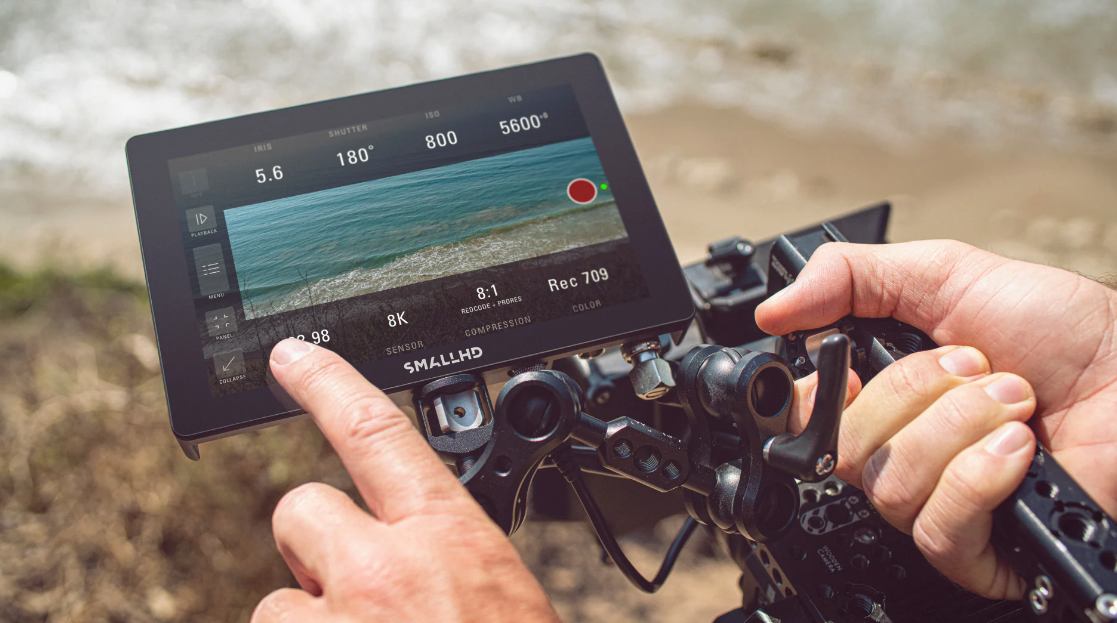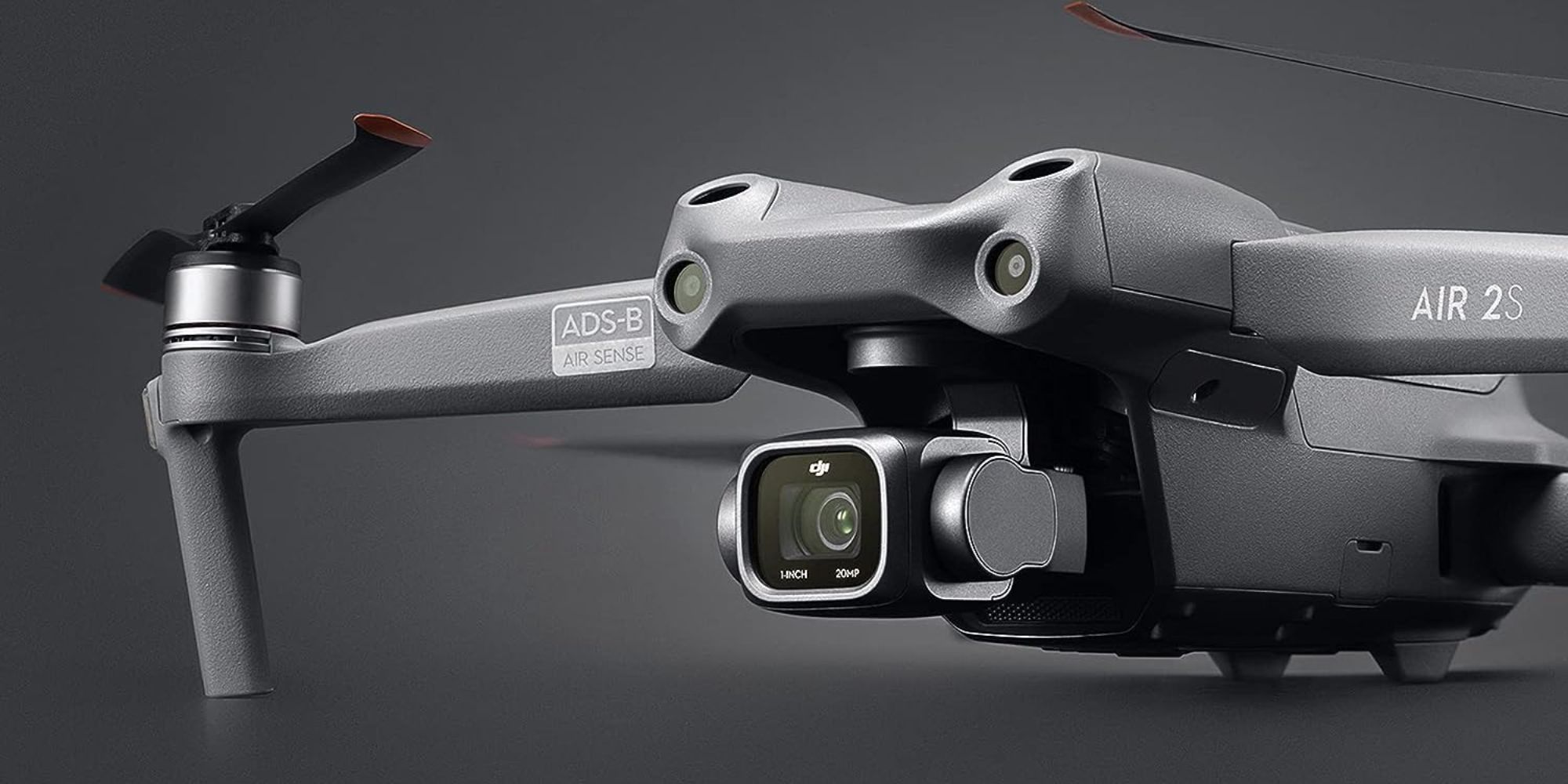SONY 70-200 F2.8 GM OSS II – Lighter, sharper

The newly released Sony 70-200 F2.8 GM OSS II has become an essential tool for professional photographers and videographers.
This new version of the Sony 70-200 F2.8 GM II is an improved model, offering better image quality and faster, more precise autofocus. Lighter and weather-resistant, its new optical design reduces unwanted effects such as chromatic aberrations and vignetting. Additionally, it provides a more intuitive manual focus, making it ideal for video work.
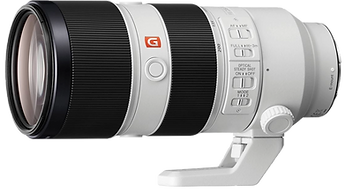
Key Features
Telephoto with Stabilization
Mount: Sony E
Coverage: Full Frame
Filter diameter: 77 mm
DMP*: 70mm = 40cm
200mm = 82cm
*Minimum Focus Distance
Technical Specifications
Mount Type : Sony E
Coverage : Full Frame
Dimensions : L 206 mm x ø 88mm
Weight : 1045 g
Max Aperture : f/2.8
Min Aperture : f/22
Min MFD : 40cm (70mm) et 82cm (200mm)
Filter Diameter : 77 mm
Weather Sealing* : oui
Stabilization : oui (OSS)
Construction
With this new zoom, Sony has tackled a major challenge: weight. By reducing the weight by 29% compared to its predecessor, this lens is now the lightest in its category on the market.
The 70-200 F2.8 GM OSS II stands out not only for its lightness but also for its robust construction and *Tropicalization = weather-sealed and featuring a fluorine coating on the front element, ensuring professional-grade durability and weather resistance.
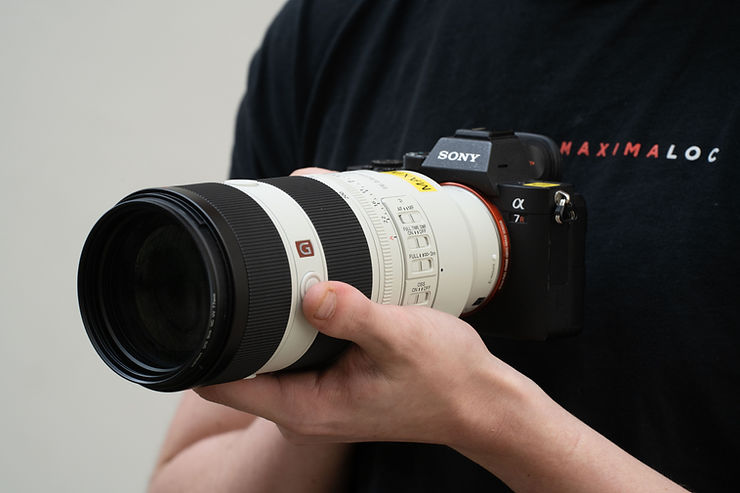
New Rings
For the first time in the new GM II series, as well as in the fixed GM series, a new aperture control ring is introduced, similar to those found in cinema lenses. This new ring provides flexibility in aperture control with a Click Mode (clicks at each third stop) and a Smooth Mode (de-clicked) for video aperture adjustments, or an automatic mode controlled from the camera. An iris lock is also included to prevent accidental mode changes.
Comparison
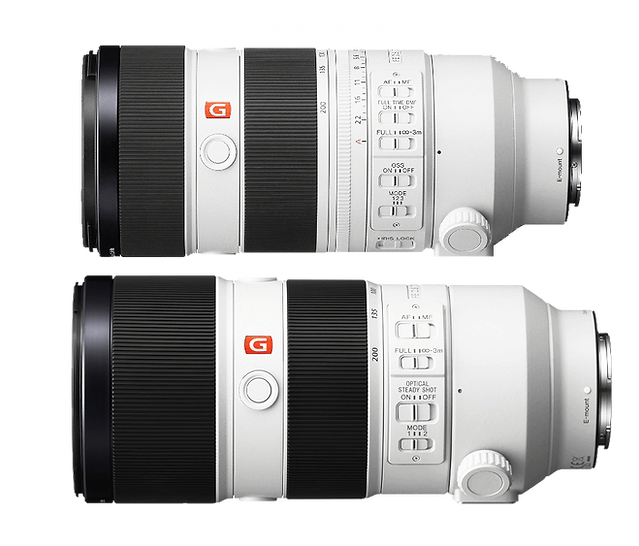
Buttons
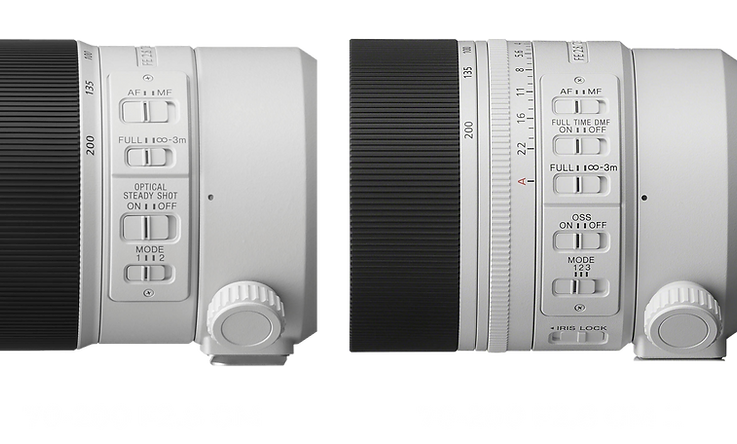
AF-MF: Autofocus or Manual Focus
FULL TIME DMF : Allows you to switch to manual focus mode as soon as you turn the focus ring, providing quick and intuitive control when needed.
FULL / ∞ – 3m : Minimum Focus Distance (Full: 82cm) or 3m. This setting prevents the lens from focusing on a potential secondary subject closer than 3m in the foreground that you may want to keep out of focus.
(E.g : tree foliage, audience during a concert, etc.).
OSS (Optical Steady Shot): Optical Stabilization System
MODE : Stabilization Modes
Mode 1: The standard stabilization mode that corrects vertical and horizontal movements. It's ideal for most shooting situations, especially when you are relatively stationary and photographing static subjects.
Mode 2: Specifically designed for panning shots. It disables stabilization on the horizontal axis to allow smooth left-right movement while correcting vertical movements.
Mode 3: Designed for unpredictable and fast-moving subjects, such as birds in flight or athletes during sports. This mode provides optimal stabilization for tracking and capturing dynamic actions.
IRIS LOCK: Allows you to lock the aperture ring (manual Iris) to prevent accidental changes during use.
New Lens
To avoid color and sharpness issues in images, it's necessary to use special glasses that are more difficult to work with. Sony has developed an advanced lens that combines these technologies, making the production process more complex but greatly enhancing performance.
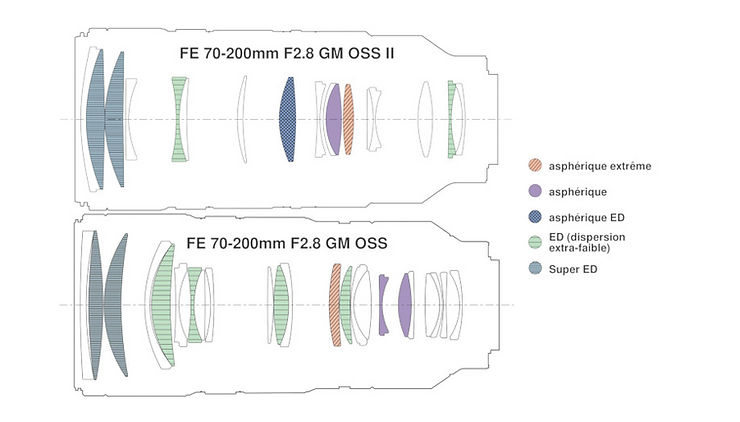
With the new Sony 70-200 F2.8 GM II lens, Sony reduces image imperfections and delivers sharp images across the entire frame, not just in the center.
Below are two graphs comparing the performance of the two Sony 70-200mm lenses (I and II) at F2.8, with different focal lengths (70mm and 200mm).
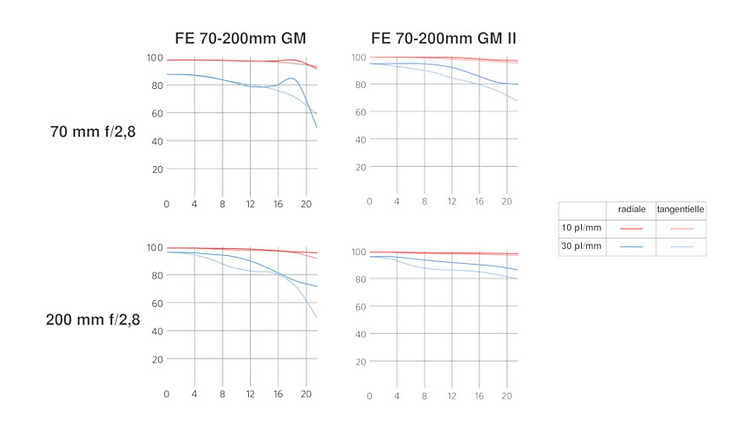
The graphs measure the resolution of the lenses in lines per millimeter (lp/mm) for two types of details:
Radial = Ronds (Rouge)
Tangentiels (Bleu).
The higher the line (closer to 100), the sharper the image will be at that point.
The two lines represent different resolution levels :
10 lp/mm (Red)
30 lp/mm (Blue)
The 30 lp/mm level shows the lens's ability to resolve fine details, while 10 lp/mm (dashed lines) indicates the resolution of larger details.
By analyzing these graphs, we can observe that for both lens models,
70mm: The performance is quite similar, with a slight improvement in the GM II model.
200mm: The GM II model shows a notable improvement over the GM I model, particularly in the resolution of radial details, which are more uniform and remain high toward the edges of the image. This suggests that the GM II model provides better sharpness across the entire image, especially when zoomed in to 200mm.
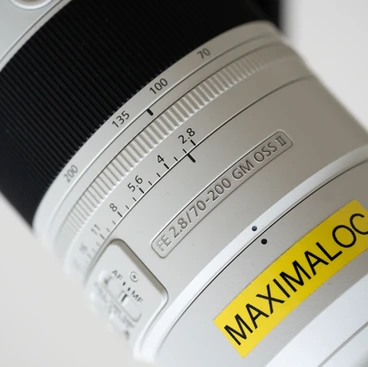
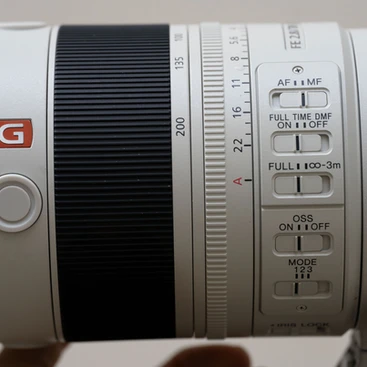
Best Autofocus
For the new model, Sony has made the lenses lighter and now uses four more advanced motors, making autofocus up to 4x faster and more efficient. This improves tracking performance by 30%, especially when following moving subjects like a runner.
These new motors are also better for slow movements, optimizing the fluidity of follow focuses and transitions in video.
The manual focus ring is no longer directly linked to the lens's mechanics but is now electronically controlled, offering a smoother and more natural response, which is especially useful in video.
4x faster autofocus
30% better tracking ability
Electronic MOP (Manual Focus) ring = smoother, especially in video
Usage
With three focus-hold buttons, the 70-200 F2.8 GM OSS II is easy to use in both portrait and landscape mode. These buttons can be programmed for different functions, such as eye autofocus control.
Conclusion
The Sony 70-200 F2.8 GM OSS II represents a significant advancement in performance and handling. It is a top choice for professionals seeking a versatile, robust, and lightweight lens.
Key Strengths
29% lighter
New optical formula
Improved sharpness, especially at 200mm
Manual + Auto aperture ring
4x faster autofocus
30% better tracking ability
Electronic MOP (Manual Focus) ring = smoother, especially in video
